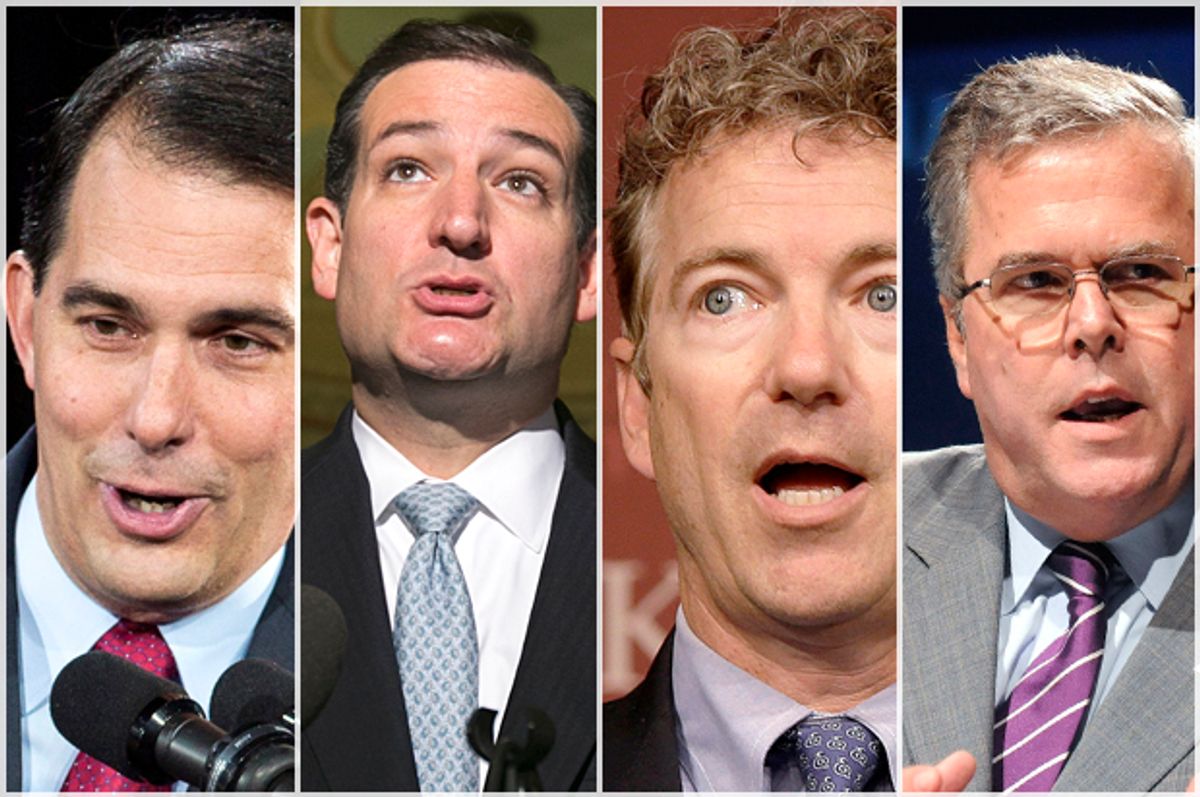The Nebraska legislature is preparing for a vote that could override Republican Gov. Pete Rickett’s veto of a bill to repeal the death penalty. The measure, which passed earlier this month with a bipartisan and veto-proof majority, would also mark the first time in more than 40 years that a deep red state has opted out of capital punishment.
But this isn’t the first time the issue has been on the table. State Sen. Ernie Chambers, an Independent from Omaha and the state Senate's longest serving member, has made 37 other attempts to repeal capital punishment. But Chambers had conservative backers this time around, a change he says made all the difference “I have to be honest that the switch among conservatives on the death penalty comes from a lot of reasons and gave our effort a big push,” he said.
Among those reasons: it is not very “pro-life” to kill people.
“I’m a pro-life guy,” state Sen. Colby Coash, a Republican who voted for repeal, told Time. “I couldn’t reconcile my pro-life beliefs regarding the unborn with doing something different with the condemned.”
“I am Republican enough. I am conservative enough. And I am strong enough to follow through with my life convictions, which is life from conception to natural death. Thank you for listening,” state Sen. Bob Krist explained in a statement on his vote.
In an editorial on why he wanted to do away with capital punishment, Republican state Sen. Jerry Johnson wrote: “I cannot morally reconcile the notion that a vote of mine can result in the eventual death of another person.”
But the conservative argument against the death penalty rests on more than just deeply felt religious convictions about life and death. Other reasons Republicans offered to explain their vote involved the cost involved in executing people and the fact that capital punishment isn’t a deterrent against murder.
For these Republicans, repealing the death penalty made moral sense, fiscal sense and practical sense. So they went with it, even as some members of their party, including Nebraska's governor, continued to freak out about what kind of message it would send about law and order. The repeal, if the legislature successfully overrides the governor’s veto, will save lives. It could also set an example and possible path forward for lawmakers to come together on other issues that seem just as polarizing -- particularly when it comes to walking the “pro-life” line -- in Nebraska and nationally.
The sea change among Nebraska Republicans can be attributed to a number of things -- a national focus on the criminal justice system that could make such a change politically possible, for example -- but it was also a moment of clarity about the state goal of a given law and whether or not they align with its real life consequences.
And while politicians tend to invoke the "pro-life" label almost exclusively when talking about abortion, there's a whole lot of space to fill in between being born and dying, but very little pro-life banner waving about it. But there is some momentum in Nebraska on other issues that conservatives and progressives can agree on -- from support for working families to protections for pregnant workers.
Ricketts just signed into law a bill to expand child care subsidies for working families so that parents who receive small raises don’t get pushed out of the program while they still aren’t earning enough to pay for a sitter or daycare. Last month, the legislature passed, and Ricketts signed, a measure to protect pregnant workers from job discrimination. A proposal for paid leave was introduced last year by a group of Democrats, though it has stalled in the legislature. But like repealing the death penalty, funding for childcare and anti-discrimination protections for pregnant workers, it checks all the same boxes that have garnered bipartisan support: it’s consistent with a pro-life worldview and largely cost neutral.
This isn't particularly radical stuff, but it's rare enough in the current climate. The most prominent “pro-life” conservatives, particularly among Republican presidential contenders, are campaigning on a wildly selective application of those values. Jeb Bush is pro-death penalty and anti-raising the minimum wage,but calls himself pro-life. Ditto for Chris Christie, who boasts about his cuts to family planning programs that enabled low-income women to access birth control and breast cancer screenings. Marco Rubio goes hard against reproductive rights in the name of “life” while backing policies that worsen child poverty.
State Sen. Johnson wrote that he couldn't reconcile the fact that his vote could lead to the eventual death of another person. Republicans who have newly seen the light on capital punishment may want to bring the same kind of reflection to their party's opposition to the Affordable Care Act, a raise to the minimum wage and other policies. They may no longer condemn men to death, but where's the morality in condemning people to poverty and lifelong illness?



Shares